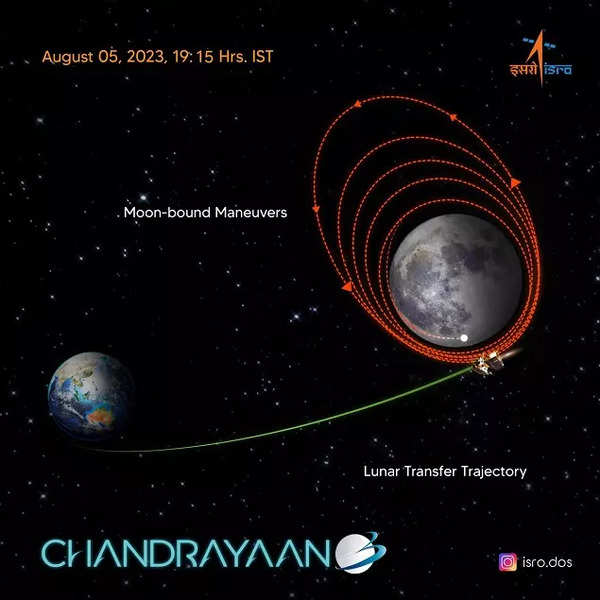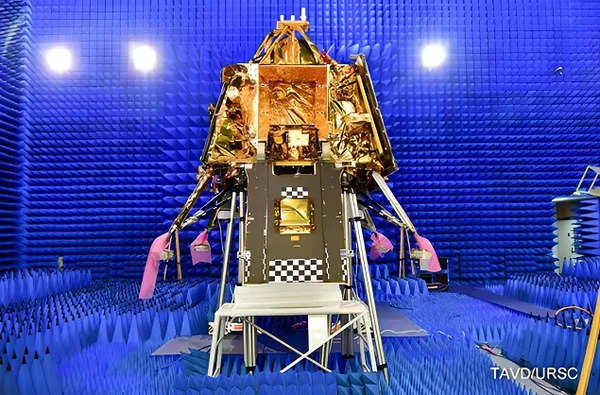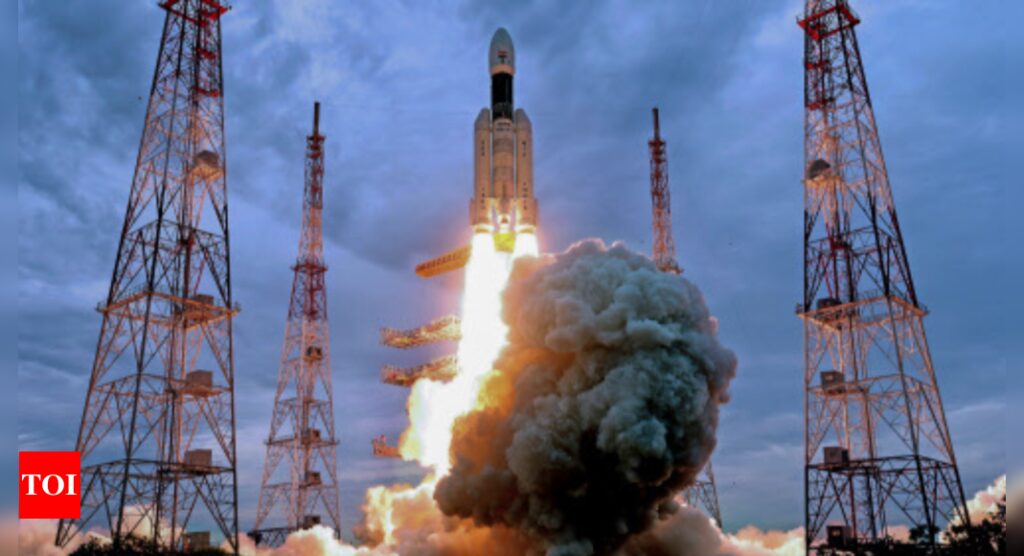[ad_1]
The spacecraft made the lunar orbit entry after escaping the Earth’s gravity and covering a long distance of 384,400 km from the ‘Blue Planet’.
Sharing the good news, Isro tweeted, “Chandrayaan-3 has been successfully inserted into lunar orbit. A retro-burning at the Perilune was commanded from the Mission Operations Complex (MOX), ISTRAC, Bengaluru.”

On the next plan on Sunday after the lunar orbit entry, the space agency tweeted, “The next operation — reduction of orbit – is scheduled for Aug 6, 2023, around 23:00 Hrs. IST.”
Talking to TOI, Isro chairman S Somanath said, “We are very happy. There is already a programme to process, starting from tomorrow, as per the plan. There are five different burns (manoeuvres) to bring the spacecraft closer to the innermost circle of 100km (altitude) from the Moon’s surface.”

Chandrayaan-3, which was launched by Isro’s heavy-lift launcher LVM-3 successfully from the Sriharikota spaceport on July 14, covered about two-thirds of the distance to the Moon. The soft-landing of the craft on the lunar surface will be attempted on August 23.
Lauding Isro’s achievement, space minister Jitendra Singh said in a tweet, “Chandrayaan3 has been successfully inserted into the Moon’s orbit. In the coming days,it will be brought down to 100 km circular. The journey continues uninterrupted as the Moon draws closer and closer!”
Just before the lunar orbit entry, the minister said, “Nothing to worry.” Explaining the craft’s journey so far in Jammu, Singh said, “What happens is when it (spacecraft) moves out of the Earth’s orbit, it goes from the Earth’s closer orbit, then takes the larger orbit and moves out. When it goes into the lunar circle, then it takes the larger orbit and then a smaller orbit, then it comes into the innermost orbit (of the Moon) and then the time is chosen and also the exact spot of the landing.”
Over five moves in the last three weeks since the launch on July 14, Isro has been lifting the spacecraft into orbits farther and farther away from the Earth. Then, on August 1 in a key manoeuvre — a slingshot move — the craft was sent successfully towards the Moon from the Earth’s orbit. Following this trans-lunar injection, the Chandrayaan-3 spacecraft escaped from orbiting the Earth.
If the softlanding of Chandrayaan-3 is successful this time, India will become the fourth country after the US, China, and Russia, to land its spacecraft on the surface of the Moon.
The stated objectives of Chandrayaan-3, which costs around Rs 250 crore, excluding the launch vehicle cost, are safe and soft landing, rover roving on the Moon’s surface, and in-situ scientific experiments.
Chandrayaan-3 components include various electronic and mechanical subsystems intended to ensure a safe and soft landing such as navigation sensors, propulsion systems, guidance and control among others. Additionally, there are mechanisms for the release of the rover, two-way communication-related antennas and other onboard electronics.
[ad_2]
Source link










More Stories
We can’t wait to face India in the final: Pat Cummins | Cricket News
Railways plans 3,000 additional trains in next 4-5 years to minimise number of waitlisted tickets | India News
Faridabad: Man dies after ‘falling from hotel room window’ while partying with friends